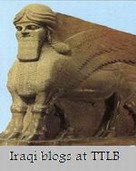CFP: "Serve the People"
8th Annual Crossing Borders Ethnic Studies Conference
Serve the People: Ethnic Studies Between Theory and Praxis
University of Southern California, March 6-8, 2009
Call for Proposals
The 8th annual Crossing Borders Conference, hosted by the Department of American Studies and Ethnicity at the University of Southern California, coincides with the 40-year anniversary of the killings of UCLA students John Huggins and Bunchy Carter. On January 17th, 1969, these two student activists and leaders of the Southern California Chapter of the Black Panther Party were shot during an ideological dispute regarding the direction of new Black Studies department. Their life work symbolizes a particular direction and hope for an Ethnic Studies that engaged with the anti-racist, anti-capitalist, and anti-war movements gaining momentum in communities around the world. Huggins and Carter, as participants in the pilot UCLA High Potential program, saw the university as a critical site for enacting their political commitments.
Huggins and Carter were a part of a larger movement rooted in local communities that maintained an internationalist perspective. These analytics emerged within a context of world-wide events which continue to reverberate within Ethnic Studies: the war in Southeast Asia, the decolonization of Africa, world-wide student protests in the late 1960s, people of color power movements, the Non-Aligned Movement comprised of and led mostly by former colonies, the New Left movement, sexual revolutions, the Gay Liberation movement, and women's movements. In this context, the 1968 Third World Liberation Front student strike at San Francisco State University led to the formation of Ethnic Studies. As a rare intellectual tradition whose roots are in confronting and transforming power, this history has deeply informed our trajectory of knowledge production and the questions we continue to ask. Yet, the founding of Ethnic Studies was also met with the inception of new technologies of discipline, an intensified era of state monitored anti-insurgency, and the inability of revolutionary visions to pay attention to issues such as gender and sexuality.
Forty years later, with the institutionalization of Ethnic Studies on university campuses, how do we make sense of our inheritance? How do we radically envision what engaged scholarship means? How do we understand questions of community engagement and commitment to social justice? How do we honor our legacies without positing a binary between theory and practice, nor uncritically glorifying old models of engaged work? With communities increasingly being defined in complex ways, how do we mount effective interventions? What are the ways in which Ethnic Studies scholars can reckon with our history and the contradictions inherent in the multiple interstices of our existences?
Keeping in mind the relationship between theory and praxis of community scholarship, we invite proposals for papers, panels, and roundtables from graduate students who address these questions through one or more of the following broad topics: race, gender, and law, globalization, transnationalism, immigration, diaspora, gender and sexuality, space and spatiality, social movements, community organizing, electoral politics, surveillance and practices of viewing, education, radical pedagogy, and cultural production (music, film, art, literature, etc.).
Submissions
We welcome submissions for panels, individual papers, and roundtable discussion. Panels should consist of 3-4 presenters, and 1 discussant, who may also be a presenter. Roundtables should consist of 4-6 slated participants who will briefly present their material and engage the audience in dialogue, and one chair who will introduce the topic and facilitate discussion. Individual papers will be considered, but priority will be given to prearranged panels.
Submission guidelines: Individual submissions must include: a 1) 250-word paper abstract and 2) a curriculum vitae. Panel presentations must include: 1) a 250-word description of the panel and 2) 250-word abstracts for each paper, and 3) a curriculum vitae for each presenter and the discussant. Roundtable submissions should include: 1) a 1-2 page description of the proposed discussion and 2) curriculum vitae for each slated participant.
Please note that all proposals must be compiled into one Microsoft Word document and sent to crossingborders09@gmail.com.





.jpg)







 -->
-->
0 Comments:
Post a Comment
<< Home